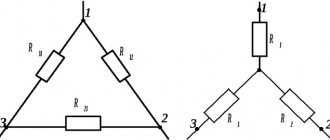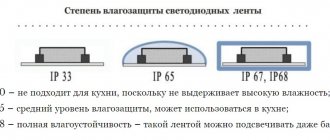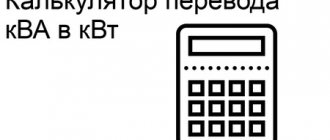Not so long ago, schoolchildren dreamed of becoming lawyers, economists or accountants, as representatives of some of the most highly paid professions. But with the uncontrolled growth of such specialists in the labor market, it is quite difficult to find a warm place with a good salary, even for a certified worker with decent experience behind him.
Nevertheless, the demand for blue-collar professions does not lose its relevance, both in terms of demand for them and in financial terms. And the widespread use of electricity in all spheres of human activity encourages young people to think about how to become an electrician from scratch.
History of the profession
People began to notice electrical phenomena in ancient times. Lightning discharges, the ability of amber rubbed on fur to attract paper and other similar effects interested the man, but he was unable to explain them. During the Renaissance, many scientists began research aimed at studying the principles of motion of charged particles. One can recall, for example, William Gilbert, who coined the term “electricity” in 1600. Contributions were made by Stephen Gray, Benjamin Franklin, Luigi Galvani and many other researchers.
People began to talk about working with electricity as a profession only at the end of the 19th century, when lighting and other electrical appliances that required constant maintenance - generators, engines, telegraphs, radios - became widespread. Throughout the 20th century, with the development of scientific and technical thought, the need for specialists in this field has constantly increased.
Electrician Education
Anyone can become an electrician. Electrician education is available after 9th or 11th grade. If you enroll after 9th grade, you will have to study for 3-4 years; if you enroll after 11th grade, the study period will be a year to a year and a half. You can also become an electrician by completing courses. If you learn a profession through courses, then your age does not matter.
Today, you can find a huge number of sites on the Internet to help electricians. If you are interested in electrician services in Samara, then search engines will help you find a huge number of resources that will offer you the appropriate services.
Description and subtypes of profession
The profession of an electrical engineer is in demand in almost all industries:
- agricultural;
- construction;
- industrial;
- IT;
- transport;
- medical and many others.
The position is a managerial one: a certified specialist usually reports to fitters and mechanics with secondary education. The engineer’s recommendations regarding compliance with safety precautions, maintenance of electrical networks and equipment are mandatory for all personnel of the enterprise or organization.
Energy engineer: rights
The job description of an electrical engineer usually prescribes the following rights:
- Familiarization with projects about decisions of the organization’s management that relate to its activities.
- State and submit for consideration of the organization’s management their proposals on issues of improving work.
- Identify and report to your immediate superior about all identified shortcomings in the organization’s activities that arose in the process of performing official duties, as well as develop and introduce solutions to eliminate them.
- Independently request documents and information that are necessary to perform official duties.
- Independently involve specialists in solving the tasks assigned to them.
- Demand that his superiors provide him with assistance in the performance of his official rights and duties.
What specialties are best to study in?
For an electrical engineer, education is of utmost importance as his work requires in-depth knowledge and complex calculations. Russian universities offer a number of specialties related to this type of professional activity:
- electricity supply;
- electrical power systems and networks;
- electrical equipment and electrical facilities of enterprises;
- non-traditional and renewable energy sources;
- operation of electrical equipment of vehicles (cars, tractors, ships and aircraft);
- power supply to railways, etc.
Major subjects when entering a university for such specialties are physics, mathematics and computer science. Additionally, applicants usually take an exam in the Russian language or provide USE results for it. It is worth noting that the average score required for admission increases every year.
Optical line installation engineer
Determination of power quality by analyzers
The employee's responsibilities include:
- carry out the installation of a branched coupling of a fiber-optic communication line (FOCL), its restoration;
- welding and dividing fiber-optic lines;
- measure the drop in signal power using the method of breakage and dissipation in the fibers during the installation of the optical cable;
- install and dismantle optical couplings.
Installation of fiber optic network cables
Best Universities to Study
The engineering profession can only be obtained at a higher educational institution. Various technical universities are suitable, of which there are many in Russia. In addition, there are corresponding specialties in many classical universities of a wide profile. Examples of the most famous higher schools:
- Moscow State Technical University named after. M. E. Bauman. One of the country's leading technical universities and a large research center with branches in Kaluga, Mytishchi and Dmitrov. It trains power engineers and electrical engineers to work in the field of mechanical engineering, robotics, and information systems. It is very difficult to enroll here, since the university is considered prestigious, but the high level of preparation justifies the effort.
- Research University "MPEI". Specializes in radio engineering, electronics, energy, IT technologies. The university includes 12 institutes (including electrical engineering) and 65 departments. It has its own thermal power plant, repair and technical center and pilot plant. Among the available areas of training are automation, technological systems and installations, vehicle equipment, industrial safety, relay protection.
- National Research Nuclear University "MEPhI". One of the largest scientific and technical centers in the country. On its territory there is a nuclear reactor used for new scientific developments. The British company QS included the university in the top 50 BRICS higher education institutions. Here, a future electrical and power engineer can master specialties related to the installation, commissioning and maintenance of nuclear power plant equipment, as well as automation of processes in the nuclear industry.
- State University of Maritime and River Fleet named after. Admiral S. O. Makarov. One of the leading industry universities for training personnel for water transport with branches in different regions of the country. The Faculty of Marine Energy trains highly qualified specialists in the operation of ship electrical equipment and automation equipment. As part of international programs, students undergo internships abroad - in Finland and the Netherlands.
- Peter the Great St. Petersburg Polytechnic University. It trains specialists to work at various types of power plants. There are areas related to the development and maintenance of technological installations, machines, devices and systems. Partner companies willingly hire university graduates, knowing that they are well prepared.
Almost all Russian regions have universities that train electrical engineers to work in industry, construction, housing and communal services and other areas.
Network repair and maintenance engineer
Electrical power and electrical engineering
A future engineer for the maintenance and repair of electrical distribution networks (IRES) is hired with an education as an electrician, for which he must present a diploma from the university where students are taught to become an electrician.
When accepting a position as an ordinary IRES, no experience in the specialty is required. As professional growth progresses over 3 years, the specialist is assigned the next level of qualification.
IRES is assigned the 2nd and 1st categories. This allows the engineer to become a more skilled worker. To obtain the 1st degree of qualification, an employee of the second category must work for exactly 3 years.
Electrical node testing
IRES in its work is guided by:
- orders, acts and instructions of the enterprise administration;
- safety rules, labor protection, sanitary standards and fire safety rules;
- job description;
- orders of the direct superior.
Job responsibilities
The responsibilities of an electrical engineer depend on his place of work and are prescribed in the job description. Typically, such a specialist performs the following tasks:
- organizes proper operation and repair of electrical networks and technological equipment;
- creates equipment maintenance schedules and instructions for its use, monitors compliance with safety regulations in the organization;
- submits applications for the purchase of necessary spare parts, materials and equipment;
- calculates energy consumption rates in order to save and rationally use resources;
- identifies the causes of accidents and equipment failures, takes measures to prevent similar incidents in the future;
- deals with certification and technical examination of equipment, draws up reports in case of its write-off;
- participates in the work of the certification commission, which gives employees the right of access to maintain equipment and networks;
- issues expert opinions on new energy-efficient methods of operating industrial equipment.
The engineer also solves various problems that management sets for him. As part of his job responsibilities, he, as a specialist with higher education, has the right to make decisions and act independently, especially in emergency cases.
General provisions in the energy engineer's instructions
An electrical engineer can design power supply systems or construct electrical machines and devices, as well as individual parts of industrial installations.
This profession is in greater demand in construction. The specialist must be able to competently develop a project for the energy supply of structures and buildings, as well as subsequently manage the implementation of his project and maintain current documentation. The work of an electrical engineer is necessary in the services for the operation of structures and buildings. In these services, a specialist must monitor the operation of power supply systems, carry out corrective work and be responsible for preventing accidents and necessary repairs. The education of an electrical engineer can be professional engineering and technical, and the required work experience is at least 3 years.
Who is it suitable for?
The specialty of an electrical engineer will be of interest primarily to men with a technical mindset, although women often perform just as well in the profession. What you will need to know in order to work effectively:
- laws, regulations and other documents related to the maintenance of electrical networks and equipment;
- rules for operation and scheduled repair of equipment, modes of operation, technical characteristics and design features;
- the procedure for drawing up estimates for repairs, as well as the purchase of electrical equipment and components;
- labor protection and fire safety rules;
- computer drawing programs (if the specialist is engaged in design).
As for personal qualities, the most important for an electrical engineer are developed logical thinking, responsibility, good memory, patience and caution, attention to detail, the ability to approach work systematically, the ability to quickly respond to emergency situations and make the right decisions, leadership qualities, readiness constantly improve your skills.
The advantages of the profession include its high demand and good career prospects. Disadvantages - danger to health and life (risk of electrical injury), often irregular schedule, the need to constantly monitor the development of technology.
Necessary requirements for an energy engineer
The job description of an electrical engineer usually includes the following responsibilities:
- Study of regulations, orders, instructions, normative and methodological materials on the operation of energy equipment.
- Organization of energy management.
- Studying the prospects for the technical development of the company.
- Study the technical characteristics, design features, operating modes and operating rules of power equipment.
- Carry out scheduled preventive maintenance and rational operation of equipment.
- Select optimal methods for installation, adjustment, and adjustment of power equipment.
- Install electrical equipment.
- Competently and timely prepare requests for energy resources, materials, equipment, tools, spare parts.
- Follow the rules for submitting faulty equipment for repair.
- Know the basic elements of the organization's production technology.
- Organization of labor not only during operation, but also modernization and repair of power equipment.
- Domestic and foreign experience in the proper operation of power equipment is welcome.
- Be aware of electricity tariffs.
- Clearly know and follow the internal labor rules.
- Have the basics of organizing work in an enterprise and economics.
- Study the basics of labor legislation.
In the absence of an electrical engineer, the job description is performed by a person appointed in the manner established by the employer. He acquires all his duties and rights, and is also responsible for his activities.
How much do they get
A few words about salary. It varies greatly depending on the qualifications of the specialist, his place of work and the region. A beginner employee can most often count on 15–20 thousand rubles, a more experienced one – 35–40 thousand. Designers receive 10-15% more.
In Moscow, salaries are higher than the Russian average and range from 40,000 to 60,000 rubles. If a master is not afraid of difficulties and is ready to work in the unfavorable climatic conditions of the Far North, then he can go to Chukotka or Sakhalin and receive more than 70,000 monthly there. Considering the applied nature of the profession, an electrical engineer always has the opportunity to earn more, especially abroad, where our specialists are highly valued.
Where to study
To obtain higher education in this specialty, you must pass the Unified State Examination subjects such as mathematics, Russian, and physics. Engineers are trained primarily in full-time and part-time (evening) formats. In Moscow, the profession of electrical engineer can be obtained in:
- Moscow State Technical University named after. N.E. Bauman
- Moscow State Engineering University (MAMI)
- National Research Technological University "MISiS"
- Russian State University of Oil and Gas named after. THEM. Gubkina
- Peoples' Friendship University of Russia (RUDN)
- Moscow Aviation Institute (national research university) (MAI)
- National Research University "MPEI"
- National Research Nuclear University "MEPhI"
You can continue to study to become an engineer by taking advanced training courses for electrical engineers.
Prospects for the profession
Nowadays, humanity is so dependent on electricity that interruptions in its generation lead to very serious consequences - from million-plus cities plunged into darkness with all their infrastructure and social facilities to the stopping of the production of critical products by enterprises. A specialist, especially a highly qualified one, will always be able to find a decent job for himself, not only in industry, construction, energy or housing and communal services, but also in design organizations that carry out orders for the development of new energy-efficient and reliable electrical systems in various areas of human activity.
Author: Sergey Pasternak
If you still have even the slightest doubt that the profession of electrical engineer is right for you, then we strongly recommend taking a career guidance test from Profgid . It costs mere pennies, and at the same time allows you to avoid mistakes that can go in the wrong direction and cripple your entire life. Find out more >>
Features of the profession of an energy engineer
Let's assume that the power engineer on duty is on shift at the station control panel. He controls the operating mode of electrical equipment, orders, if necessary, to stop the equipment or make operational switches in the circuit, etc. At this moment, information comes that an important and complex apparatus, for example, a high-voltage switch, has failed. In this case, a professional will make sure that this breakdown does not disrupt the normal operation of the station as a whole. The engineer on duty needs to quickly make the only right decision. He will make the necessary switches that will localize the accident.
In order to cope with such complex tasks, an energy engineer must perfectly know how the electrical circuit of an object works, and also be able to imagine the possible consequences that may result from his incompetent actions.
Important qualities
The profession of an electrician requires logical thinking, a technical mindset, good fine motor skills, keen vision, attentiveness, accuracy, and responsibility. Diseases of the musculoskeletal system, eyes, and nervous system are considered contraindications.











